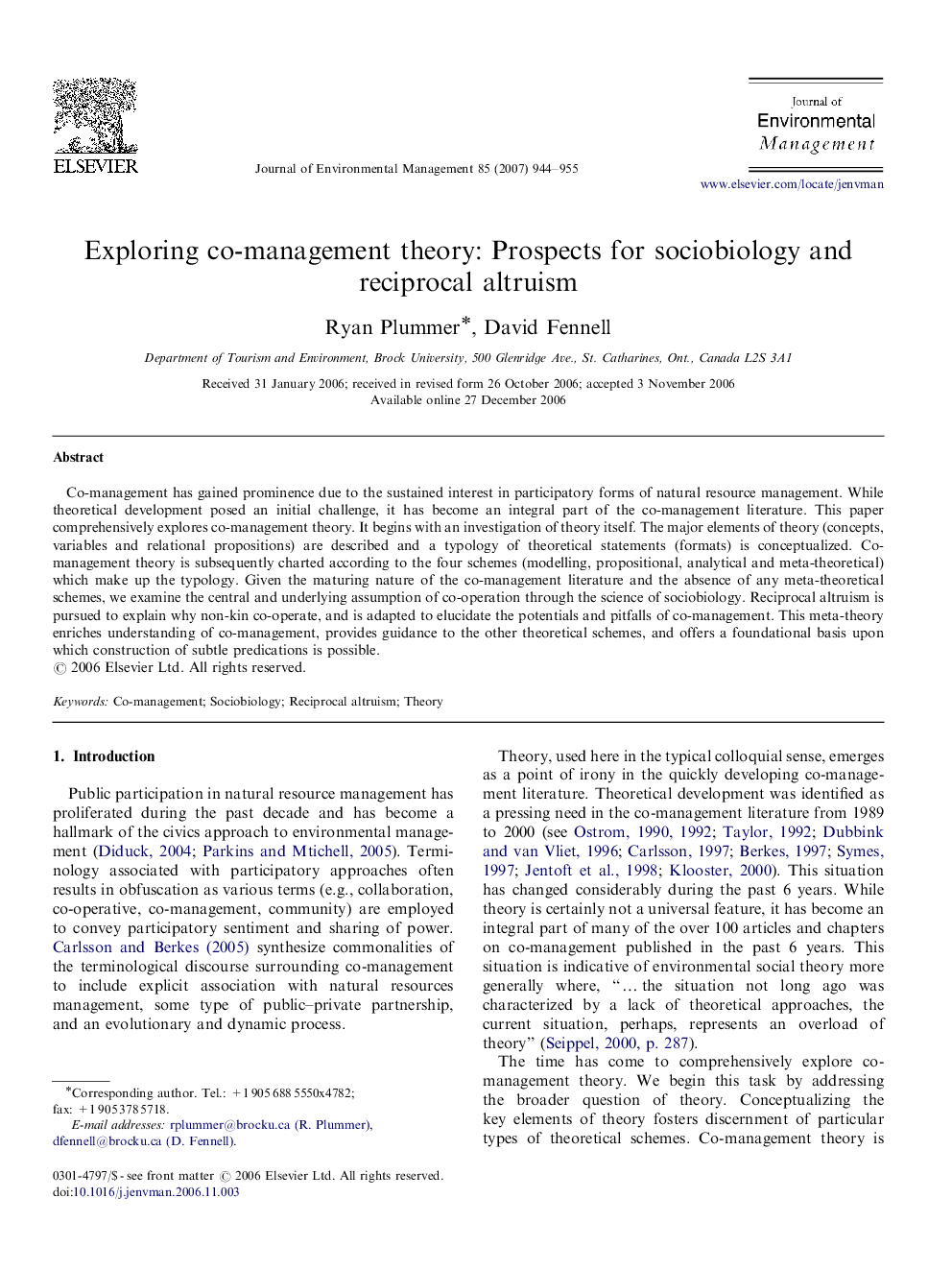| Article ID | Journal | Published Year | Pages | File Type |
|---|---|---|---|---|
| 1058498 | Journal of Environmental Management | 2007 | 12 Pages |
Co-management has gained prominence due to the sustained interest in participatory forms of natural resource management. While theoretical development posed an initial challenge, it has become an integral part of the co-management literature. This paper comprehensively explores co-management theory. It begins with an investigation of theory itself. The major elements of theory (concepts, variables and relational propositions) are described and a typology of theoretical statements (formats) is conceptualized. Co-management theory is subsequently charted according to the four schemes (modelling, propositional, analytical and meta-theoretical) which make up the typology. Given the maturing nature of the co-management literature and the absence of any meta-theoretical schemes, we examine the central and underlying assumption of co-operation through the science of sociobiology. Reciprocal altruism is pursued to explain why non-kin co-operate, and is adapted to elucidate the potentials and pitfalls of co-management. This meta-theory enriches understanding of co-management, provides guidance to the other theoretical schemes, and offers a foundational basis upon which construction of subtle predications is possible.
